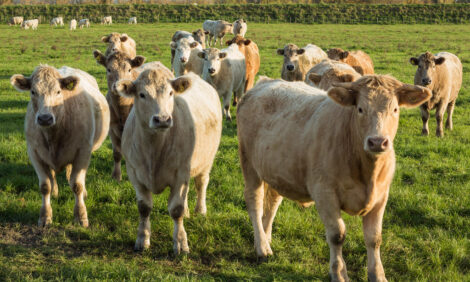



National Award for Advancing Sustainable Agriculture
AUSTRALIA - A national project led by a South Australian researcher that is helping boost farm productivity and natural resource management has won a prestigious 2013 Eureka Prize in Sustainable Agriculture.The Australian Museum Eureka Prize, sponsored by Caring for our Country and Landcare, was presented to Project Leader Dr Jason Emms from the South Australian Research and Development Institute, (SARDI) the research arm of PIRSA, before 700 science, government, cultural and media leaders in Sydney last night.
Minister for Agriculture, Food and Fisheries Gail Gago says the eight-year A$1m project, funded by Future Farm Industries Cooperative Research Centre, involved numerous researchers from SARDI, CSIRO and the University of Western Australia, as well as many farmers at regional evaluation and demonstration sites across four states.
“This project has tackled demanding questions for our producers grazing animals in difficult and variable climates,” Ms Gago said.
“Researchers have studied thousands of plants and identified those that thrive best in low rainfall areas as well as the nutritive value of those shrubs, and are helping farmers incorporate them into grazing systems in low to medium rainfall areas.
“The timing of the Enrich project is perfect, given the need for producers to adapt grazing systems to changing environments across southern Australia, while maintaining a viable business.
“My hearty congratulations to Dr Emms and his team for this high-quality research that is delivering valuable knowledge with practical applications and significant advantages to Australian farmers.”
Dr Emms, speaking at the dinner last night, said that the Enrich farming systems were making an impact through improved productivity using forage shrubs.
“Including native shrub species in the perennial feed base provides multiple benefits for both the animals and the environment,” Dr Emms said.
“These include green feed during summer and autumn and improved animal health through unique nutritive and bioactive properties which can also reduce methane production.
“The shrubs also provide shade for livestock and reduce soil erosion, degradation and salinity.”
TheCattleSite News Desk


